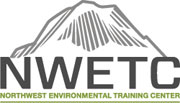Description: **If this course has Remote Live Attendance -- USA as the location, it is a live stream remote course. You will need a computer and an internet connection. CEQ’s regulations implementing NEPA were declared invalid by the D.C. Circuit Court of Appeals because CEQ has never had statutory authority to promulgate regulations. A recent Executive Order issued on Day One requires CEQ to rescind their NEPA-implementing regulations, and instead to issue guidelines to agencies on implementing NEPA. These are the largest and most transformative actions to change the NEPA practice since NEPA was enacted over 50 years ago. All of this is explained in detail in Basic NEPA. NEPA practitioners will learn about these changes and will get tools to effectively deal with them. If you have attended Basic NEPA before, it’s now time for an update. Basic NEPA training materials are grounded on the NEPA statute and the Administrative Procedure Act, which have not changed, plus NEPA case law – which also has not changed. For any Federal proposal for action, either we will write a “detailed statement” as required by NEPA, or we will write reasons not to. All possible reasons not to are detailed. Alternatives in a “detailed statement” are still governed by the statement of need for action. A model for how to write that need statement is detailed. A cumulative impacts analysis is still necessary because of the Administrative Procedure Act. A model for how to conduct that analysis is detailed. A substantial handout with graphic models, updated case lists that support the models, and sample documents is included in this course. All training materials are based on statutes and NEPA case law, fully applicable even without CEQ’s regulations. Attendees may wish to keep the course material as a reference in the workplace. DID YOU KNOW -- NEPA is the most litigated environmental statute in the United States, according to the CEQ. Prepare to defend your agency decisions with defensible NEPA documents, according to the NEPA models in this course. Future-proof your NEPA practice by staying on top of recent changes. ** For an advanced, seminar-style discussion of NEPA issues, attend our one-day Advanced NEPA Workshop, immediately following this course. Completion of this course is excellent preparation for getting the most out of our Advanced NEPA** course. There is a $50 discount when purchasing the 2 courses together. This workshop is designed to serve both as a comprehensive introduction for those new to NEPA and a refresher for more experienced professionals. The course is beneficial for federal agency staff and decision-makers, attorneys, consultants, as well as members of environmental organizations, and interested citizens who are concerned about the environmental effects of federal actions. Those who have taken this course in years past will benefit from updated materials based on the newest judicial opinions. Even those who have worked with NEPA their entire careers will stand to learn more about the secrets to successful NEPA compliance.
Intended Audience: This workshop is designed to serve both as a comprehensive introduction for those new to NEPA and a refresher for more experienced professionals. The course is beneficial for federal agency staff and decision-makers, attorneys, consultants, as well as members of environmental organizations, and interested citizens who are concerned about the environmental effects of federal actions. Those who have taken this course in years past will benefit from updated materials based on the newest judicial opinions. Even those who have worked with NEPA their entire careers will stand to learn more about the secrets to successful NEPA compliance.
Continuing Education Units: 1.60 CEUs
Course Topics
DAY 1
Writing the Perfect FONSI
Ultimate conclusions
Basic conclusions
Evidence
Reasons
Timing the NEPA process to the decision making process
Idea
Proposal
Recommendation or report
Decision action
Monitoring, supplements
Eight good reasons not to prepare an EIS
Writing the perfect EA or EIS
Eight plain-language questions any EA or EIS should readily answer
Writing the perfect ROD
Double winnowing
SCOPE: Alternatives
Proposal for action
Need underlying the proposal
Action alternatives:
- Alternative places to go
- Alternative ways to get there
No-action alternative
Mitigation not included in the proposal
Decision factors
Writing the perfect cumulative impacts analysis
Actions:
-Reasons to lump
-Reasons to split
Impacts:
-Direct, indirect, and cumulative
-Increments to past, other present, and reasonably
foreseeable future actions
Writing the perfect cumulative impacts analysis, continued
Administrative Record
DAY 2
SCOPE: Alternatives
Proposal for action
Need underlying the proposal
Action alternatives:
- Alternative places to go
- Alternative ways to get there
No-action alternative
Mitigation not included in the proposal
Decision factors
Writing the perfect cumulative impacts analysis
Actions:
-Reasons to lump
-Reasons to split
Impacts:
-Direct, indirect, and cumulative
-Increments to past, other present, and reasonably
foreseeable future actions
Writing the perfect cumulative impacts analysis, continued
Administrative Record
About the Instructor
 Owen L. Schmidt, BA, MA, JD, has more than 32 years of service with the Federal Government. He has served as Senior Counsel with the U.S. Department of Agriculture, Office of the General Counsel in Portland, Oregon, where he advised the Forest Service, Natural Resources Conservation Service, and other USDA agencies in Washington and Oregon. He was also a Special Assistant United States Attorney in the District of Oregon. Before joining USDA in 1991, he was an attorney for the Bonneville Power Administration, where he joined the legal staff after several years as an Environmental Specialist. Mr. Schmidt received his J.D. from Northwestern School of Law of Lewis & Clark College (1977), and a B.A. (1969) and M.A. (1973) in biology from St. Cloud State University, Minnesota. Mr. Schmidt is a frequent author and lecturer on the National Environmental Policy Act. He served as a Vice-Chair of the American Bar Association’s Book Publication Committee for the Section of Environment, Energy, and Resources and as a Vice President for the Ninth Circuit, The Federal Bar Association. He was the Editor of Oregon Birds, a quarterly journal of Oregon Field Ornithologists, for 14 years (1985-99), and is a long-time member of the Oregon Bird Records Committee.
What to Bring
Computer, good internet, a way to take notes.
Billing Information
In order to guarantee a space in a course, the tuition must be paid in full TWO WEEKS before the first day of the course by either check or credit card. State and government agencies paying with a purchase order are allowed payment under the two-week time frame if a copy of the purchase order is received by NWETC.
If You Need to Cancel
Cancellations*-
With 31 or more days notice, we will offer a 100% refund or credit towards a future course. The credit is good for one year and may be applied to any course.
- With 30-8 days notice, we will offer a course credit towards a future course. The credit is good for one year and may be applied to any course.
- With fewer than 8 days notice, there is no course credit available
*Please note that attendee replacement is welcome at any time
Disability Accommodations
Disability Accommodations:To request disability accommodations, please contact us at info@nwetc.org or 425-270-3274 at least 30 days prior to the event.
|










